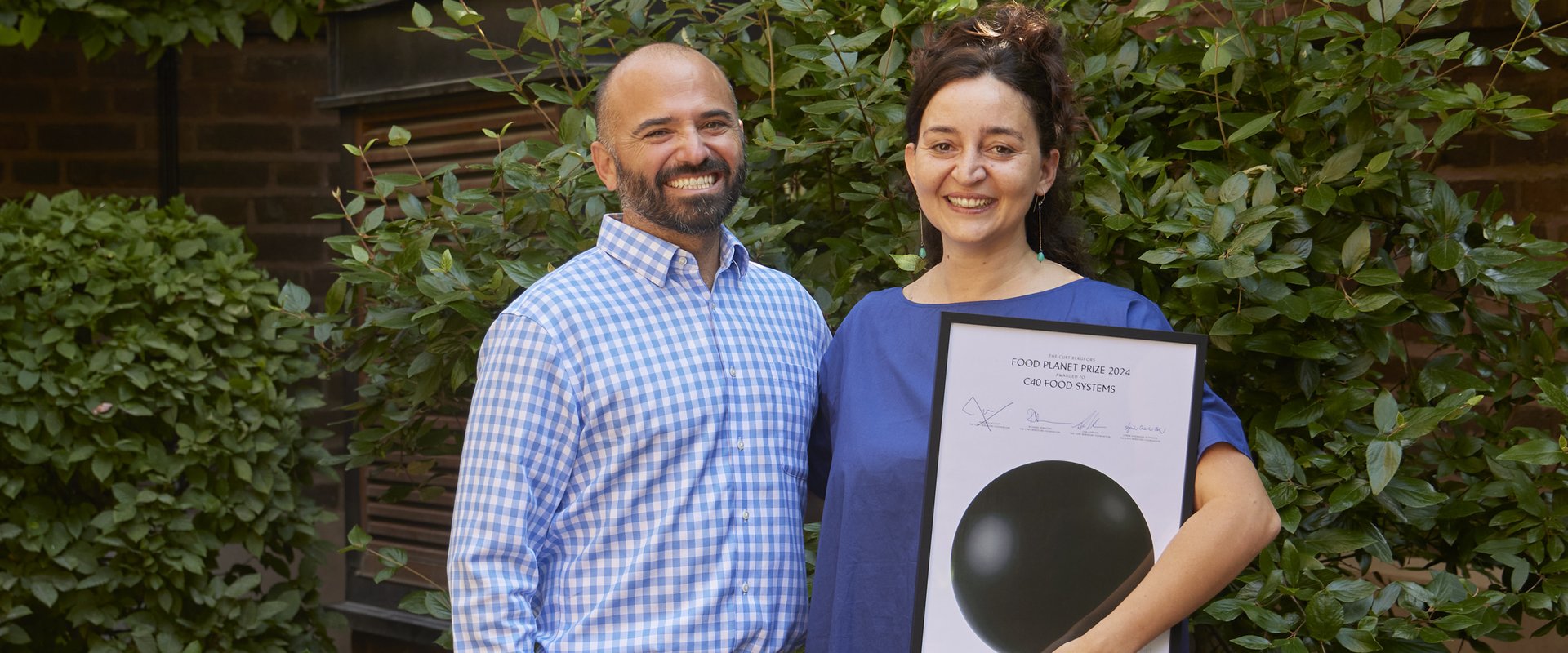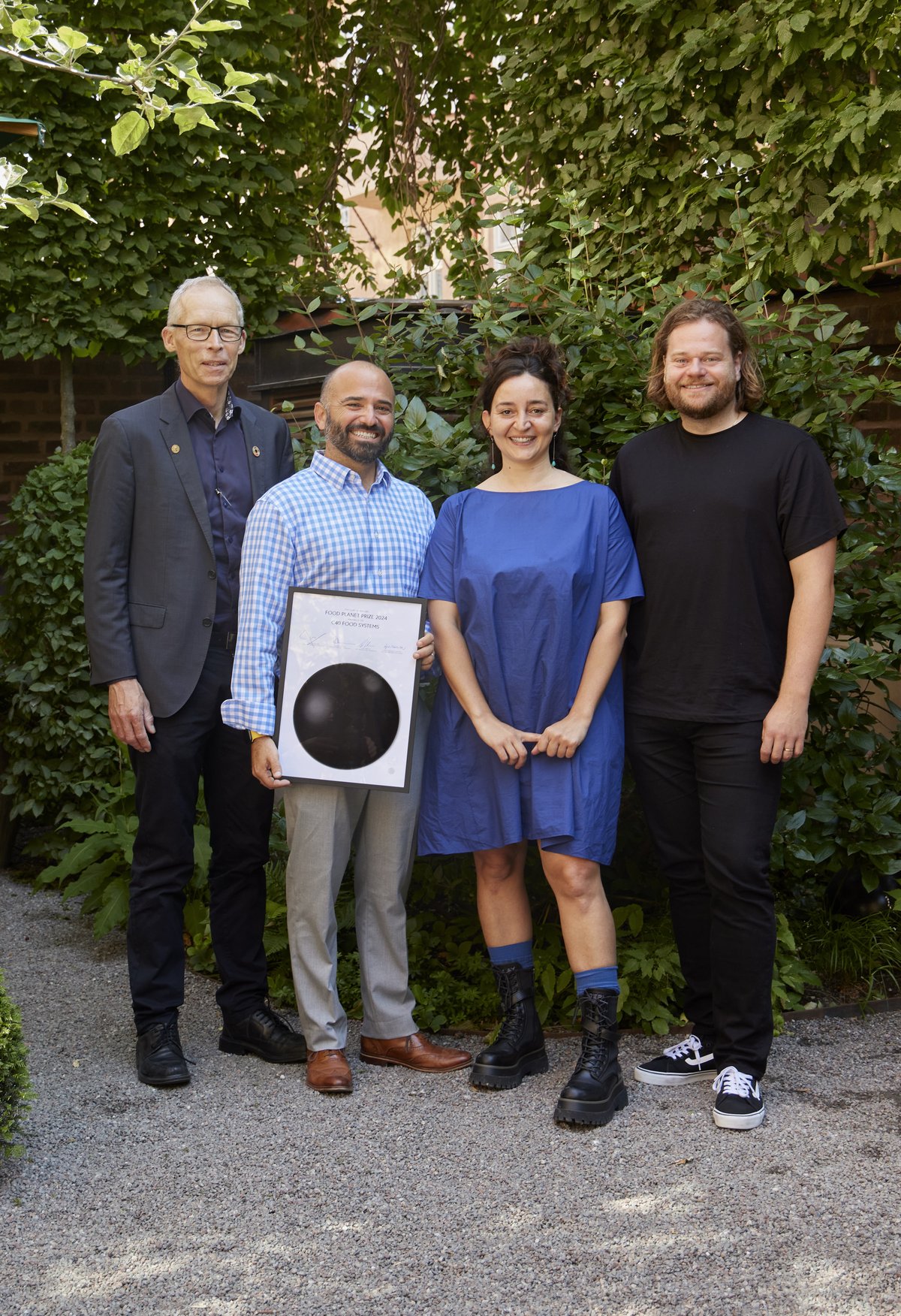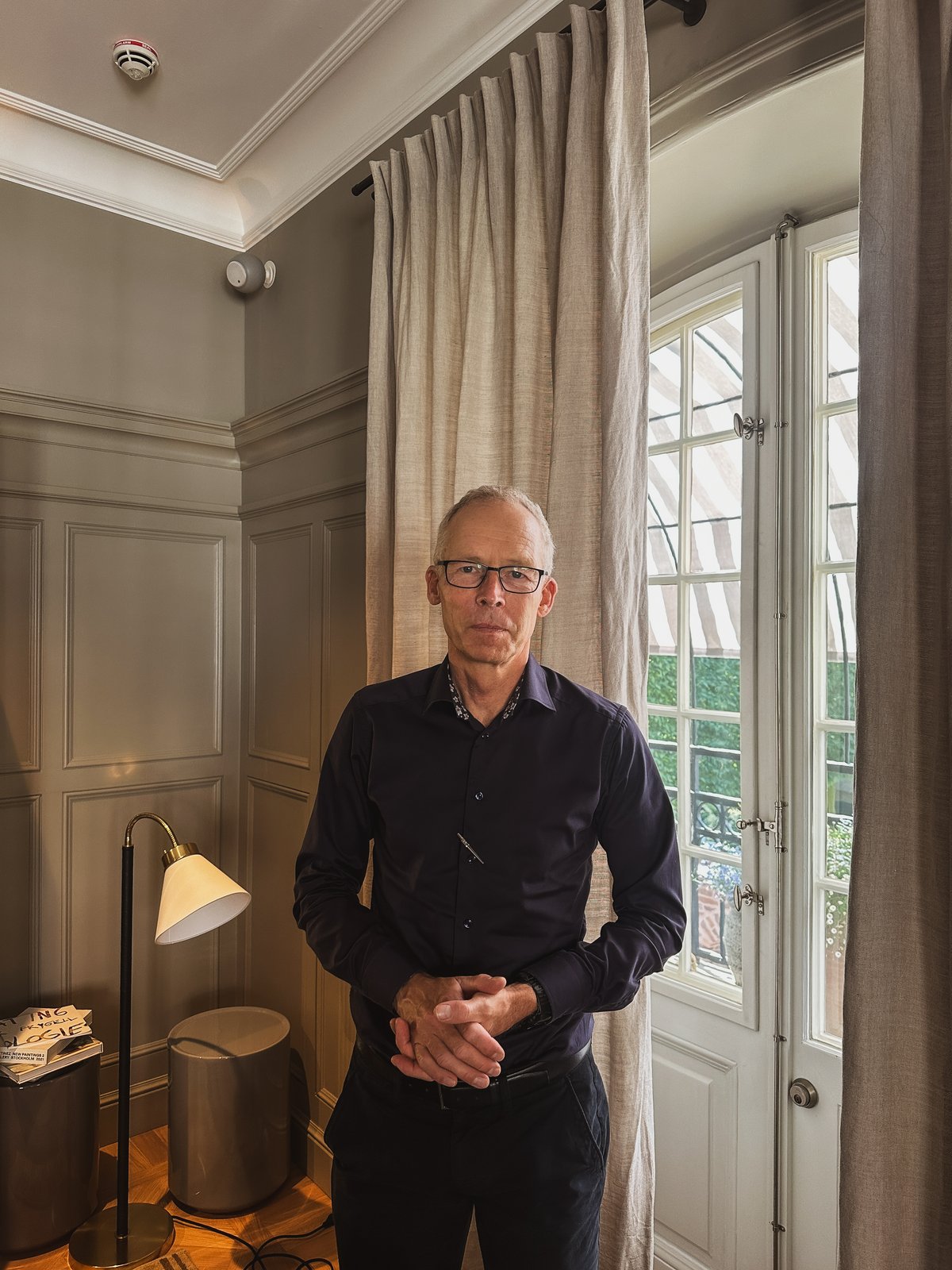The world’s biggest and most important environmental award has chosen its winner.

The Food Planet Prize 2024 has been awarded to C40 Cities, a powerful network of nearly 100 mayors from around the world, committed to addressing climate change. Established in 2005, this influential group has effectively highlighted the power of local urban action in contributing to global efforts to combat climate change.

Magnus Nilsson, Managing Director of Curt Bergfors Foundation, which runs the Food Planet Prize and the co-chair of the Food Planet Prize jury, Zachary Tofias, director of the food and waste program and Stefania Amato, leader of food strategy at C40, Johan Rockström co-chair of the Food Planet Prize jury.
During the award ceremony, The Food Planet Prize jury emphasised the crucial role of cities in the transition to healthy and sustainable food systems, with around 70% of global food consumption taking place within our cities. The jury proceeded to highlight the role of C40, and its ability to significantly influence global food policies by supporting urban areas in food policy, procurement, and school food programs, to minimise food waste and enhance governance. By collaborating with other urban sustainability networks, C40 has the potential to accelerate improvements in the global food system.
«The Food Planet Prize is looking for candidates or potential winners that fulfil two criteria. One is that they engage in solutions that align with healthy, sustainable food. And the other, is that we can see that they have the potential to accelerate, and to scale up fast» - shares Johan Rockström, co-chair of the Food Planet Prize Jury and a distinguished environmental scientist, is renowned for developing the "Planetary Boundaries" framework. As one of the world's most cited researchers, he also leads the University of Potsdam's Institute for Climate Research.
Magnus Nilsson, the former head chef of the renowned Fäviken restaurant in Sweden, changed the focus of his career to food writing and education after deciding to close the restaurant.
Reflecting on his decision, Nilsson noted, "I was just finished with that particular restaurant. I didn't love it anymore, and the only reason to run a restaurant like that is that you love it and want to do it every day. I was in a very privileged situation in that I had the opportunity to close it. I'm incredibly happy that I stopped it the way I did. It would have been a lie to keep it open just for bookings, as the essence of such restaurants is someone loving it and wanting to share it with the world."
«And I think that this sort of concept, that the very best fine-dining restaurants should be handled like other extreme expressions of culture, like an opera house for example, that can never sustain itself on ticket fees alone needn’t be the only way. I think that the idea that a restaurant should function like that is not how it should necessarily work. It's one way of doing it if you want to achieve something very specific that costs a lot of money, but, I mean, what is it that we pay for when we go to a great restaurant? To me, personally, it's not that they have, you know, 10 million euro decor. It's that you are cooking for me. You are giving me hospitality. That's the interaction that I'm looking for, that I’m willing to pay for. And I think that in the future we'll see more of that.»
Now, as co-chair of the Food Planet Prize jury, Nilsson continues to shape the Now, as co-chair of the Food Planet Prize jury, Nilsson continues to shape the culinary landscape. He is also venturing into cider production, aiming to challenge the traditional dominance of grape wine by crafting apple-based beverages with the same ambition and quality as the top Champagne houses.
Nilsson details the intricate selection process for the Food Planet Prize, which carries a significant $2 million award. He emphasises the diverse composition of the jury, which includes ten members from varied backgrounds—half from policy or senior academia, and the other half comprising practical food professionals such as farmers, winemakers, and chefs, from four continents and all parts of the food system, both theoretical and practical. This diversity ensures a range of perspectives and robust discussions. "We never agree at the beginning," Nilsson tells us.
The evaluation process involves extensive reviews of material prepared by an in-house research team. Nominees are given the chance to make a five-minute pitch directly to the jury, which is then followed by internal discussions. "In the end, everyone votes from their heart," Nilsson tells us, emphasising the personal and subjective nature of the final decision, free from rigid predefined criteria.
Nilsson stresses the extensive efforts made to ensure that only the most capable and deserving nominees are shortlisted. When it comes to the high-value prize, he points out the critical distinction between the Food Planet Prize and the more usual grants - The prize money is awarded in full to the winners, who then have complete autonomy over its use without oversight, underscoring the trust placed in their capability and integrity.
To avoid potential biases and ensure a fair assessment, the jury does not visit the nominees. Instead, an investigative team is dispatched to evaluate the candidates impartially, serving as the jury's "agents" to observe and report back, ensuring a transparent and equitable selection process.

Johan Rockström, co-chair of the Food Planet Prize jury
Johan Rockström supports the selection of the C40 Cities initiative for its significant role in climate action. « This organisation has effectively demonstrated how urban areas can act as pivotal hubs for climate initiatives, citing London's ban on taxis with internal combustion engines as a prime example of successful urban policy in action».
Rockström also highlighted the potential of cities to drive changes in food system management. He pointed out that with 70% of all food being consumed within urban areas, cities have a critical opportunity to reshape how food is procured and managed, particularly within school and hospital meal programs. By establishing better rules for reducing food waste and shifting away from unsustainable food sourcing, cities can significantly mitigate their environmental impact, preventing the downstream effects of waste generated by the current practices. He adds “If cities can change the logic of what kind of food is procured...it can make a difference.”
He also stresses the strategic role cities can play beyond their local boundaries, potentially influencing national policies and outcomes: “And if a country has five or six big cities, if just three of those big urban areas start changing, it gives us cleaner air, better health, food prices are reduced, the kids perform better at school, and all that can tip over the logic and send signals on a national level, and perhaps even influence the outcome of elections. So don't underestimate what cities can accomplish.”
He observes that while some industries such as oil, coal, and gas remain reluctant to adapt, other sectors, including food, transport, and clothing, are increasingly recognising the necessity for resource efficiency in order to attain future competitiveness and profitability. Rockström highlights the urgency to move away from unsustainable practices, not just for environmental reasons but also for economic sustainability, suggesting that even if we disregard planetary health, the logic of market forces will still favour more sustainable solutions.
In particular, he refers to the significant progress in the transport industry, where there is a global shift towards abandoning the internal combustion engine, with China leading the way. This shift is putting pressure on the European car industry to accelerate its own transformations. However, Rockström also remarks on the fact that industries such as utilities, aviation, and heavy industrial sectors such as those producing cement, aluminium, and steel are lagging behind, though they too are beginning to make strides toward sustainability.




